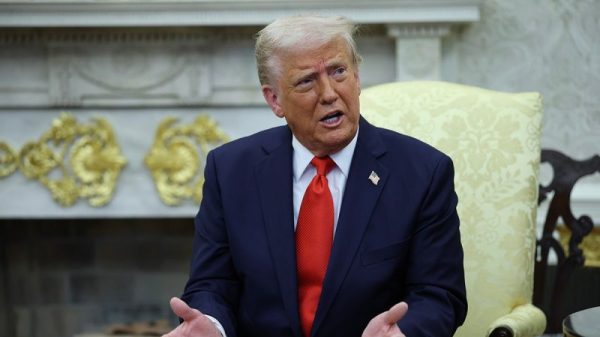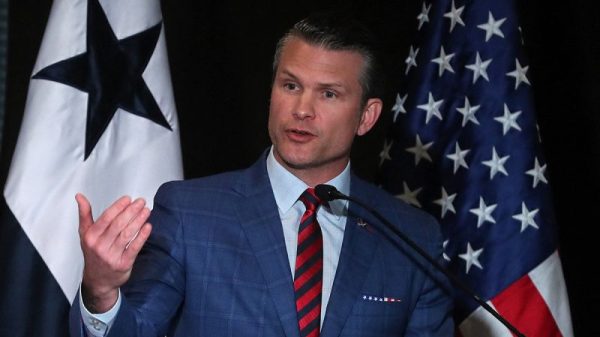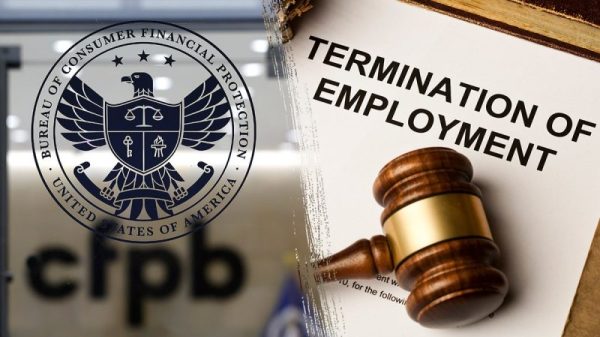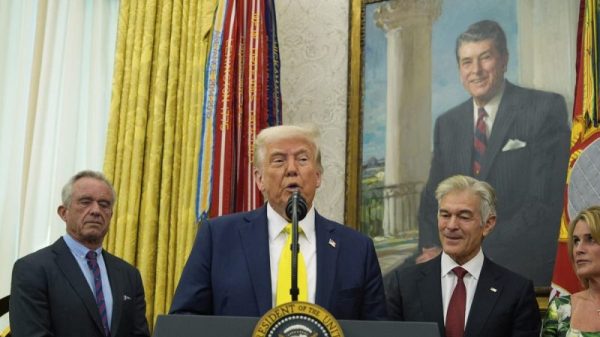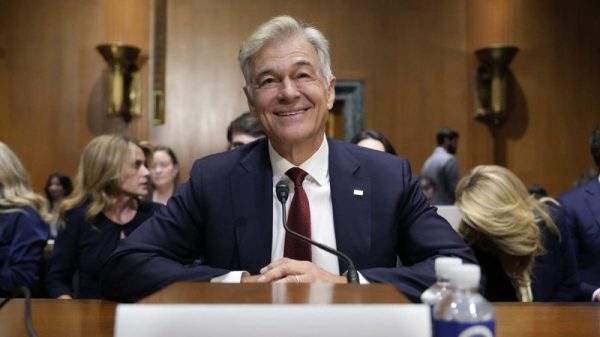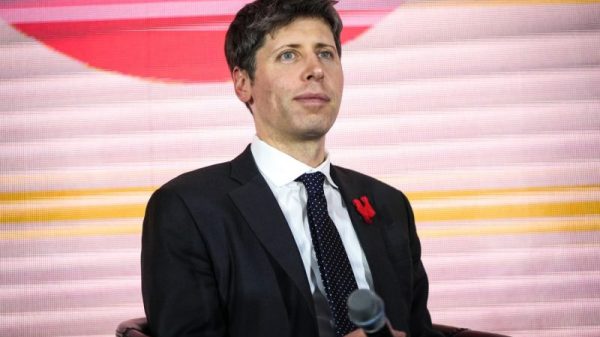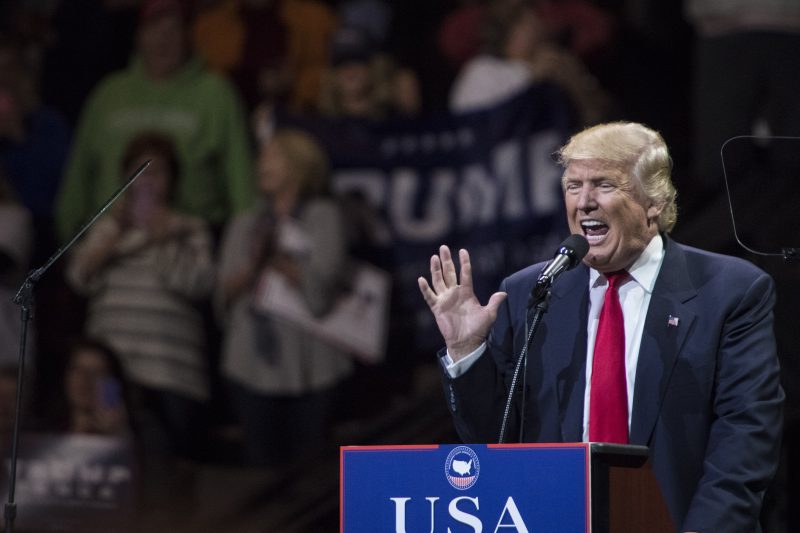Donald Trump has denigrated undocumented immigrants in recent weeks by accusing them of “poisoning the blood of our country,” associating them with drug and alcohol use and portraying them as dangerous threats to Americans, prompting widespread criticism and denunciations of racism and xenophobia from immigrant and civil rights groups.
During a recent rally in Cedar Rapids, Iowa, the former president said: “These people are very aggressive: They drink, they have drugs, a lot of things happening.” In Dubuque, Iowa, last month, he told his audience: “It’s the blood of our country; what they’re doing is destroying our country.” And in New Hampshire on Monday, Trump baselessly accused immigrants crossing the Mexican border of being involved in the recent attacks on Israel. “People (are) pouring into our country, and we have no idea from where they come,” he said.
Disparaging many immigrants and embracing hard-line border policies are tactics that have long been central to Trump’s political identity and governing agenda, dating to his first campaign speech in 2015. Trump’s recent comments, coming as President Biden has struggled to contain an increase in illegal crossings at the Southern border, reflect the ex-president’s effort to put the border and immigration at the forefront of his bid to return to the White House. His at-times escalating attacks have energized his base of supporters while prompting a growing wave of alarm from immigrant advocates, particularly as Trump is the clear polling leader in the race for the GOP nomination.
Domingo Garcia, president of the League of United Latin American Citizens, the oldest Hispanic civil rights group in the country, said that Trump’s comments about blood indicate his language is “getting more extreme,” comparing it to Nazi propaganda about Jewish people, and that more people should be paying attention ahead of the 2024 election.
“He appears to be taking pages from the Hitler Nazi playbook and using them in this production to divide Americans and engage in tribalism,” Garcia said. “And he’s succeeding to a certain extent.” Civil rights advocates and experts in extremism and immigration policy have compared Trump’s “poisoning the blood” remark to language used by Adolf Hitler in his book “Mein Kampf,” in which he told Germans to “care for the purity of their own blood” by eliminating Jews.
Trump launched his 2016 campaign by calling undocumented immigrants from Mexico “rapists” who are bringing “drugs” and “crime” into the country. As president, he signed an executive order limiting travel from several Muslim-majority countries that faced numerous court challenges, added new barriers along the southern border and drew backlash for his administration’s policy that separated migrant families.
Now, civil rights groups including the Anti-Defamation League, which fights antisemitism, and LULAC, are warning that his suggestion in a recent interview that undocumented immigrants coming across the southern border are “poisoning the blood of our country” could inspire violence against minorities and reflects rhetoric used by white nationalists.
Jon Lewis, a research fellow at the Program on Extremism at George Washington University, said that “poisoning” language has directly appealed to people in the past who have gone on to commit violence against minorities, citing the El Paso and Tree of Life synagogue mass shooters.
“These were both events that were driven by a deeply white supremacist, deeply anti-immigrant set of conspiracies and a coherent anti-immigrant worldview that was centered on dehumanizing the other,” he said. “And in this context, I think it’s always going to be deeply concerning when we see the continued proliferation of what are openly white supremacist dog whistles that will likely inspire more individuals to engage in offline conduct targeting these communities.”
When asked about Trump’s interview with the National Pulse, a right-leaning website, in which he made the “poisoning” comments, his campaign spokesperson Steven Cheung said, “That’s a normal phrase that is used in everyday life — in books, television, movies and in news articles. For anyone to think that is racist or xenophobic is living in an alternate reality consumed with faux outrage.”
Across his campaign rallies, Trump devotes significant portions of his speeches to the border and to immigration, speaking in often exaggerated and graphic terms. He paints a bleak picture of the country: associating undocumented immigrants with gangs such as MS-13 and suggesting they’re taking up educational resources in cities like Los Angeles. The Supreme Court ruled in 1982 that public school districts can’t turn away students because they are undocumented.
“We’re going to have the largest deportation operation in history,” he said to loud applause during a Saturday campaign event in Waterloo, Iowa. (While Trump promised to deport millions during his first term, he was unable to do so because of resistance from Democratic state and local officials and budget and staffing shortages in immigration enforcement.)
Two days later, in New Hampshire, the crowd cheered as Trump recounted a poem he often recites about a woman who aids a snake and is bitten, comparing immigrants seeking refuge in America to bloodthirsty reptiles.
Angela Kelley, chief policy adviser at the American Immigration Lawyers Association and a former senior counselor for the Department of Homeland Security under Biden, said Trump repeating his ideas has normalized crude, false notions about immigrants that do not actually advance policy that would address the crisis. Advocates say migrants are fleeing violence, government repression and poverty in hopes of a better life in the United States.
“Just because he repeats it doesn’t make it any less dangerous,” she said.
While Trump has associated migrants with acts of violence, evidence has shown that undocumented immigrants commit crimes at lower rates than native-born Americans. Trump’s assertion in New Hampshire that “those same people who just attacked Israel” are coming into the United States is also false, analysts said.
Alex Nowrasteh, who has studied crime and immigration data at the Cato Institute, testified before Congress last month that nine foreign‐born terrorists entered the country illegally from 1975 to last year, but only three of those people crossed the Mexican border, while the others came from Canada. And there is no evidence any Hamas-affiliated terrorist has crossed the southern border, either. “There are many problems at the border without exaggerating what we’re seeing,” Nowrasteh told The Washington Post.
Promoting ideas to combat illegal immigration and drug trafficking has galvanized the Republican base in recent years, and candidates up and down the ballot have embraced variations of the positions and rhetoric Trump has exemplified. In the Republican primary this year, Trump and some of his rivals have championed militarily attacking cartels in Mexico. Florida Gov. Ron DeSantis has proposed using “deadly force” to combat drug smugglers breaching the border.
“It’s gone one step further, and the tenor has changed as a result,” Cristobal Ramón, an immigration senior policy adviser at the immigrant advocacy organization UnidosUS.
The Republicans’ ideas are resonating on the right, as migrant crossings of the U.S.-Mexico border have soared under the Biden administration. Administration officials said this month that they would fast-track the construction of new barriers along the border as well as reinstate direct deportation flights to Venezuela. The rise in migrants has led to increased criticism of the Biden administration from Democratic officials including New York Mayor Eric Adams and Illinois Gov. J.B. Pritzker.
In interviews, attendees at the recent Trump events in Iowa and New Hampshire ranked the border as among their top issues of concern and said they agreed broadly with Trump’s statements, even if some said they were not thrilled with his delivery.
When asked what issue was most important, Vicki Gander, 72, a registered Republican in Iowa who is volunteering for Trump, responded, “Building the wall, because a lot of things are going to happen, bad things, and they’re already happening. I mean even the Democratic governors are upset.”
Craig Robinson, an Iowa-based GOP consultant, attributed the concern over the border to “the nature of having presidential contests in Iowa frequently.”
“That kind of drives this issue to the forefront more so,” he said. “Another factor, not to be overlooked, is while Iowa is in the middle of the country, we have immigration issues here because we’re at the crossroads of interstate 80 and 35.”
In 2021, there were about 11.2 million undocumented immigrants living within the United States, according to the Migration Policy Institute, the largest bump since 2015 after fewer people were crossing the border during the coronavirus pandemic in 2020. Census data showed that between 2019 and 2021, migration from Central America and Venezuela increased.
Laine Soullier, a 24-year-old tile worker, was one of thousands who piled into an auditorium in Wolfeboro, N.H., to hear the former president, whom he voted for before and said he would again. Soullier said he agreed with the sentiment of Trump’s comments because immigration has made it more difficult for him to earn a competitive wage, but he said Trump’s remarks “could be said with more tact.”
“There are things that could be said better,” he said. “But you aren’t voting for the way someone talks. You are voting for what they do.”
Ellen Cassanello, who drove seven hours from her home in New York to hear Trump speak, agreed with his comments on immigration, arguing that it isn’t controversial to say migrants should come to the United States only if they have gone through the legal process. She added that she believes those criticizing Trump are only doing so because they don’t want him to win the election.
Maria Sacchetti contributed to this report.

